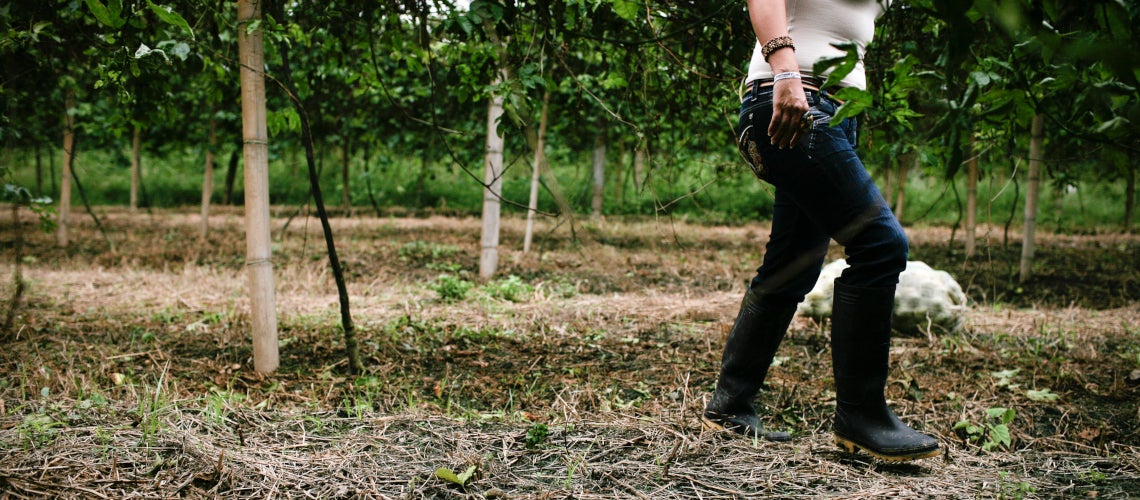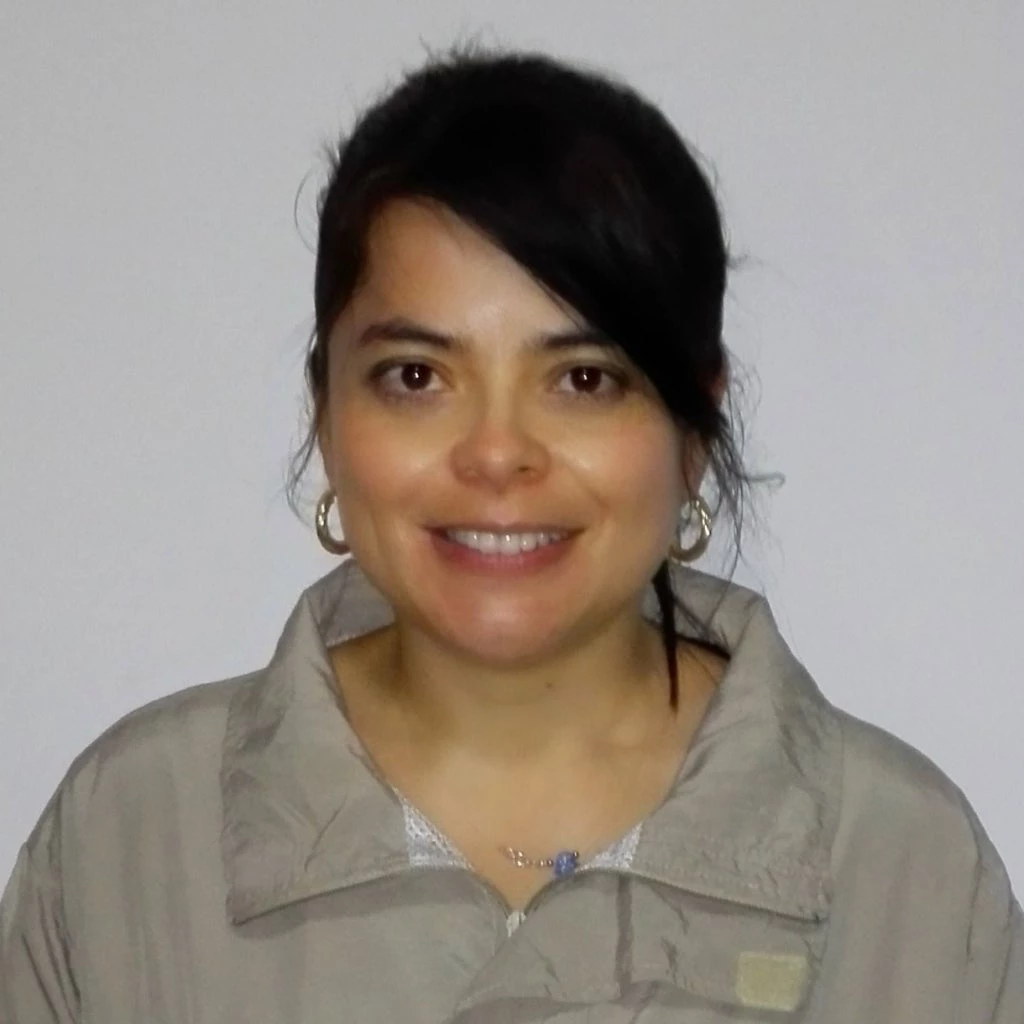 Member of a passion fruit producers’ alliance in Colombia. Photo: Charlotte Kesl / World Bank
Member of a passion fruit producers’ alliance in Colombia. Photo: Charlotte Kesl / World Bank
Land is a complicated sector for countries to govern, and it is especially challenging in fragility, conflict, and violence (FCV) affected situations. In these contexts, ensuring women’s land rights can fall by the wayside. However, improving women’s access to land and protecting their rights, can be a stabilizing factor for these situations, contributing to economic and social stability, food security, sustainable development, peace and equality. Three countries from different regions began focusing on women’s access to land in their quest for stability and security – Liberia, West Bank and Gaza, and Colombia. What are the lessons other countries can learn from their experiences?
Liberia
Women’s land rights affect millions of families in Liberia, as 40% of all Liberian women work in agriculture. Unfortunately, at least half of Liberian women feel insecure about their land tenure and patriarchal norms contribute to land disputes. However, the creation of the Liberia Land Authority (LLA) in 2016 and the recognition of customary and women’s land rights in 2018 through the Land Rights Act demonstrate that change is possible. But how can we ensure that these changes result in actual improvements in women’s lives?
The LLA, with support from the World Bank, is currently implementing the first national campaign to raise awareness on the new laws and women’s land rights. In addition, the use of new technologies such as Talking Books is helping the LLA to educate men and women about their land rights. The establishment of gender-balanced Community Land Development and Management Committees is another crucial step towards registering customary land, ensuring women’s land rights. One critical success factor is the cooperation of the LLA and civil society organizations to pilot and expand customary land registration.
To secure better access of women and customary communities to formal land administration services, the LLA is working towards decentralizing its offices. One of the positions envisioned at the decentralized level is a gender officer – replicating the existence of a Gender Unit at LLA’s headquarters. These examples demonstrate that what is required is a holistic approach to securing women’s land rights – that consists of streamlining gender issues in the legal framework, institutional arrangements, and actual field activities.
West Bank and Gaza
In the Palestinian territories, there have been multiple registration efforts over the years. However, over 60% percent of the West Bank remains unregistered with meager rates of women’s ownership or joint ownership. Women in MENA face intense social pressure to rescind their inheritance rights to land, which is the primary avenue for them to access land and property. As Palestinian women account for only 18% of the country’s labor force, women’s access to land and their associated potential access to finance would provide much-needed security in this fragile context.
In 2017, the Palestinian Authority renewed efforts to conduct systematic land registration (SLR), and just by expanding registration and having accessible settlement offices located in the local authorities’ offices, there has been an increase in women filing their ownership claims and registering their properties. It is clear that one of the first steps to improving women’s land ownership is creating access for them to the settlement process .
This is not enough to fully ensure women’s land rights, though. A significant barrier for women is the lack of knowledge about the SLR process and how to claim their rights. With support from the World Bank’s Real Estate Registration Project (RERP), the Palestinian land agencies will introduce a gender-disaggregated recording of ownership for accurate statistics and transparency . It will also support a public awareness campaign to increase understanding of the process, with a focus on women and marginal groups, in line with a Gender Action Plan that will recommend further actions and policies for the land agencies to strengthen women’s land rights. By engaging in these activities, the Palestine Land Authority and the Land and Water Settlement Commission were motivated to activate gender units to steer these processes.
Colombia
November 2021 marks the 5th anniversary of the signing of Colombia’s Peace Agreement. Women's organizations succeeded in creating a Subcommittee on Gender in the Peace Accord. This was unprecedented for peace processes throughout the world and guaranteed effective participation of women in the negotiation process.
The Peace Accord's first chapter addresses the need to transform Colombia's countryside. It includes access to land and land use, calling for gender-disaggregated data related to hectares titled to women, credit lines with a gender focus, and access to alternative conflict resolution mechanisms.
If Colombia manages to implement the Peace Accord's gender-related objectives, this will generate a structural transformation of the conditions faced by rural women . This transformation would include closing the gaps between women and men and between rural and urban women regarding land tenure.
Rural women and women's organizations know the territory and their communities, and can ensure the protection and recognition of land tenure and use rights towards peace consolidation . However, women's organizations need ongoing support that includes institutional strengthening of local authorities, community awareness-raising on women's property rights, and skills training to resolve land-related conflicts.
Final thoughts
While the contexts of the three countries are very different, the challenges to and importance of ensuring women’s land rights are similar. In fragile, conflict and violence-affected contexts, armed conflicts, forced displacement, and land grabbing generally exacerbate gender gaps regarding property and land tenure rights . Conflicts around access to land and housing have been and continue to be the nodal element of the conflict, showing that women are much more prone to being victims of inequities and property crimes. Although women's land rights are protected in the legal frameworks, in practice there are operational obstacles to realize their land rights, and little is known about the magnitude of the gender gap because land information systems are just beginning to capture and monitor disaggregated gender data
As the Magaly Belalcázar Platform of Colombian Rural Women Political Advocacy states: "Women shall not be in the backyard of the house; we are not there only to raise chickens." Solutions for securing women’s land rights stem from recognizing the need for and a solid commitment to addressing the issue at the highest political levels . The three countries have demonstrated that continued awareness-raising, institutional, legal reforms, special and updated procedures, and gender-disaggregated data remain vital to tackling gender-based global land inequality.
(*This post has been updated)




Join the Conversation